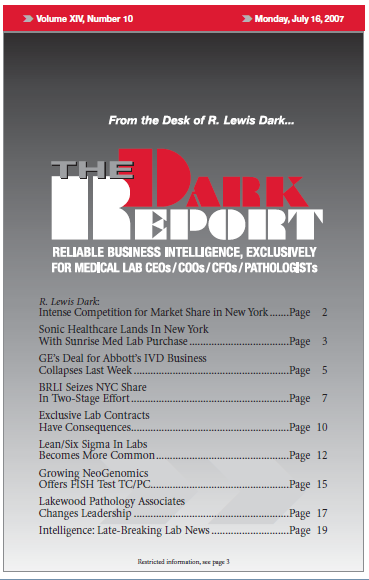CEO SUMMARY: Both companies have said little about their mutual decision, announced last week, to kill the pending sale of Abbott Diagnostics and Point-of-Care businesses to General Electric. One probability is that GE decided, during due diligence, that its willingness to pay a premium price—15 times EBIDTA—was unjustified by the quality of the assets and …
GE’s Deal for Abbott IVD Collapses Last Week Read More »
To access this post, you must purchase The Dark Report.


